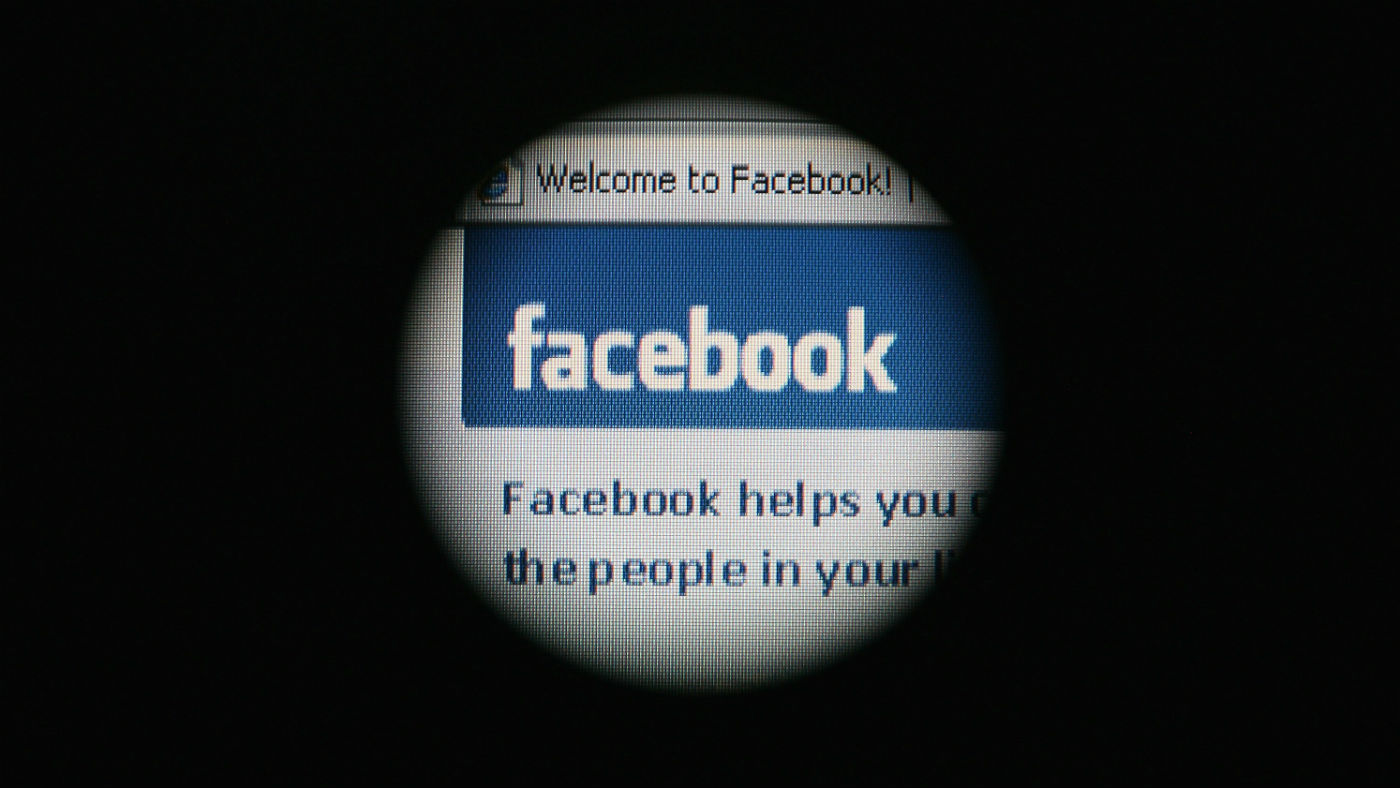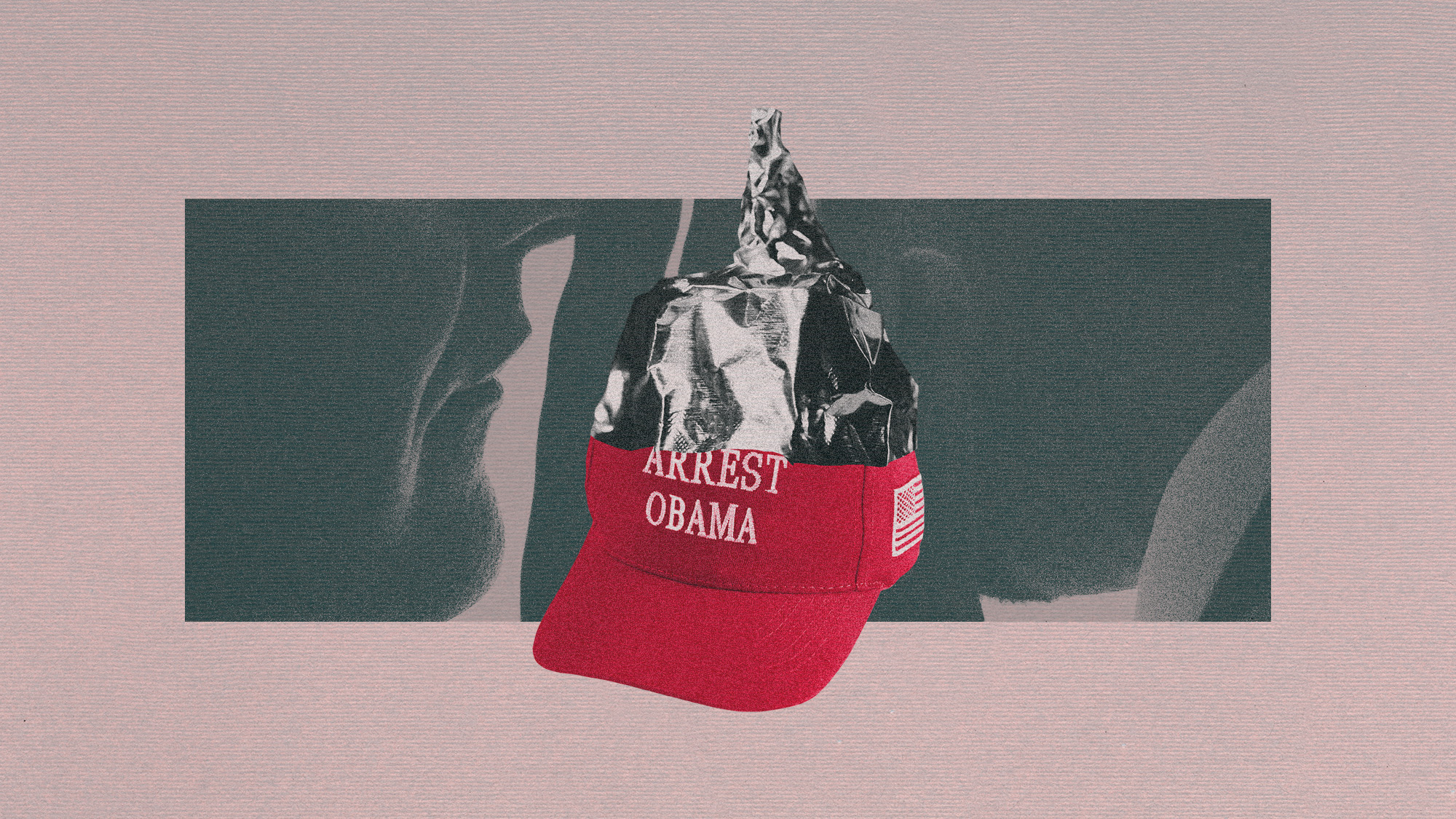Facebook faces ‘fake news’ inquiry over Brexit
MPs ask Mark Zuckerberg whether Russian-linked accounts influenced EU referendum and general election

A free daily email with the biggest news stories of the day – and the best features from TheWeek.com
You are now subscribed
Your newsletter sign-up was successful
MPs investigating the impact of “fake news” during last year’s EU referendum campaign have asked Facebook whether Russian-linked accounts were used to influence the result.
Damian Collins, chairman of the Digital, Media and Sport Committee, has sent a letter to Facebook chief executive Mark Zuckerberg also asking about similar activity during this year’s general election.
The MP told The Sun that Facebook will already know whether the claims of election meddling are true.
The Week
Escape your echo chamber. Get the facts behind the news, plus analysis from multiple perspectives.

Sign up for The Week's Free Newsletters
From our morning news briefing to a weekly Good News Newsletter, get the best of The Week delivered directly to your inbox.
From our morning news briefing to a weekly Good News Newsletter, get the best of The Week delivered directly to your inbox.
The committee’s inquiry, set up earlier this year but suspended for the general election, aims to “shed light on issues such as the impact of fake news on public understanding of the world and response to traditional journalism, the responsibilities of social media platforms and how people can be educated to assess news sources”, says Reuters.
To that end, Collins has vowed to explore “the role of foreign actors abusing platforms such as yours to interfere in the political discourse of other nations”. He has asked Facebook to provide examples of adverts bought and pages set up by Russia-linked accounts. He wants to know how these ads and pages were targeted, how much money was paid to promote them and how many times they were viewed.
Similar evidence has already been supplied to several US Senate committees investigating whether foreign actors used social media platforms to interfere in last year’s presidential election. Last month, Facebook disclosed that $100,000 (£75,000) had been spent by Russian-linked accounts on ads aimed at promoting divisive political and social messages over a two-year period. It claimed some ten million people in the US viewed these ads and messages.
Representatives from Facebook, Twitter and Google are due to give evidence in Washington next week. Collins told CNN Money he is considering holding a committee meeting at the British Embassy in Washington, DC in order to question major US tech executives.
A free daily email with the biggest news stories of the day – and the best features from TheWeek.com
Facebook has said it updated its software in January to prevent hoax news from appearing in its “trending topics” section.
According to The Daily Mail, users’ feeds now consider not only the number of people posting about a topic, but also the number of publishing organisations doing so, “to ensure that what appears is more likely to reflect real-world events being covered by multiple news outlets”.
In April, Facebook also trialled a guide to help users spot fake news.
However, the former head of GCHQ, Robert Hannigan, last week warned ministers they will have to regulate social media platforms to counter the threat of fake news.
On the wider issue of foreign interference in British elections, The Guardian says “individual MPs” claim “the government already has details of alleged Russian interference in British elections that it is withholding from the public”.
Last week, Ben Bradshaw MP called on the government to get to the bottom of reports of opaque funding sources for some elements of the pro-Brexit campaign, citing “widespread concern over foreign and particularly Russian interference”.
The latest news follows a major investigation by Open Democracy into how various pro-Leave groups were funded, covering money paid to the Democratic Unionist Party and the unofficial Leave.eu campaign bankrolled by Ukip’s main benefactor Aaron Banks.
-
 The Week Unwrapped: Do the Freemasons have too much sway in the police force?
The Week Unwrapped: Do the Freemasons have too much sway in the police force?Podcast Plus, what does the growing popularity of prediction markets mean for the future? And why are UK film and TV workers struggling?
-
 Properties of the week: pretty thatched cottages
Properties of the week: pretty thatched cottagesThe Week Recommends Featuring homes in West Sussex, Dorset and Suffolk
-
 The week’s best photos
The week’s best photosIn Pictures An explosive meal, a carnival of joy, and more
-
 How corrupt is the UK?
How corrupt is the UK?The Explainer Decline in standards ‘risks becoming a defining feature of our political culture’ as Britain falls to lowest ever score on global index
-
 The high street: Britain’s next political battleground?
The high street: Britain’s next political battleground?In the Spotlight Mass closure of shops and influx of organised crime are fuelling voter anger, and offer an opening for Reform UK
-
 Biggest political break-ups and make-ups of 2025
Biggest political break-ups and make-ups of 2025The Explainer From Trump and Musk to the UK and the EU, Christmas wouldn’t be Christmas without a round-up of the year’s relationship drama
-
 ‘The menu’s other highlights smack of the surreal’
‘The menu’s other highlights smack of the surreal’Instant Opinion Opinion, comment and editorials of the day
-
 Is a Reform-Tory pact becoming more likely?
Is a Reform-Tory pact becoming more likely?Today’s Big Question Nigel Farage’s party is ahead in the polls but still falls well short of a Commons majority, while Conservatives are still losing MPs to Reform
-
 Taking the low road: why the SNP is still standing strong
Taking the low road: why the SNP is still standing strongTalking Point Party is on track for a fifth consecutive victory in May’s Holyrood election, despite controversies and plummeting support
-
 Is Britain turning into ‘Trump’s America’?
Is Britain turning into ‘Trump’s America’?Today’s Big Question Direction of UK politics reflects influence and funding from across the pond
-
 Will Trump actually prosecute Obama for 'treason'?
Will Trump actually prosecute Obama for 'treason'?Today's Big Question Or is this just a distraction from the Jeffrey Epstein scandal?